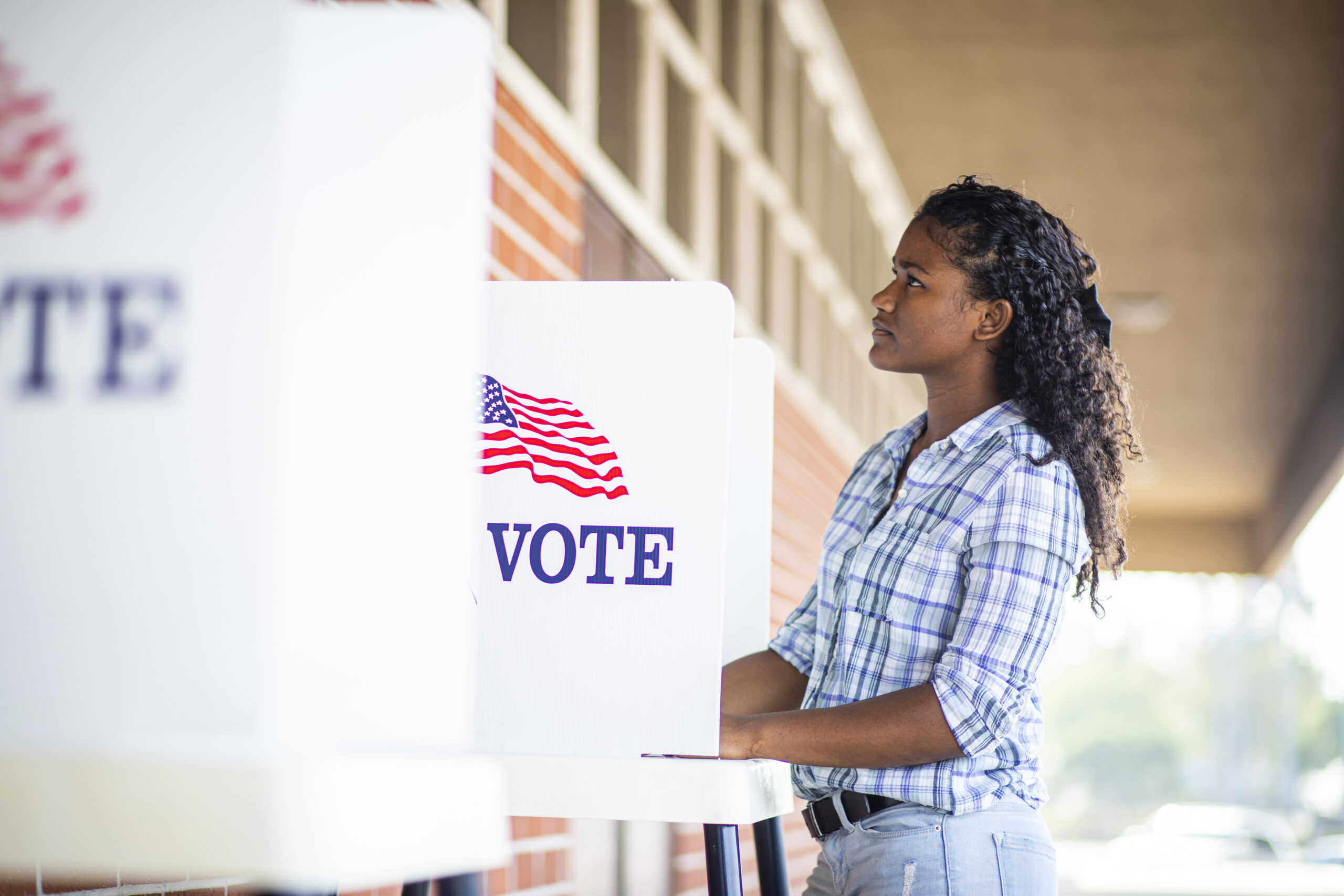For many Black women in America, the 2024 Presidential Election did not turn out how they had hoped. The race saw Vice President Kamala Harris, a Black woman, face-off against former president, Donald Trump.
From the start of her candidacy, Black women feared the reaction to Harris’ race and sex. During the months of campaigning racist and sexist comments were lodged at the vice president who became the Democratic candidate after President Joe Biden exited the race. Despite majorly supporting Harris, the vote of Black women proved to not be enough to lead her to a win. According to an NBC News exit poll, 92 percent of Black women voted Democrat that’s compared to 78 percent of Black men and 47 percent of white women.
Black Women React to Harris’ Loss
On X (formerly Twitter), Black women shared their disappointment, shock and sadness after the election was called in Trump’s favor.
“Every Black woman in America empathizes with Kamala right now. Overwhelmingly qualified. Still doubted,” user, Dimplez wrote.
Many women also expressed frustration with other people of color. According to the Washington Post, Trump scored somewhere between 41 percent and 45 percent of the Hispanic vote. NBC News’ exit poll reports 54 percent of Latino men and 37 percent of Latino women voted for Trump.
“Don’t ever ask me to be part of any POC movement. Ever. I do not care. I will stand on that,” co-host of The Scottie & Sylvia Show, Scottie Beam wrote on X.
Protecting Mental Health Post-Election
As Black women process the results of the November 5 election, licensed clinical social worker and holistic psychotherapist, Odile McKenzie, urges them to not ignore any emotions.
“Allow yourself to feel the grief and all the other emotions associated with the win, such as fear, anxiety, and sadness. Black women are socialized to be self-sacrificing, so resist the urge to fix things for everyone or the world,” McKenzie advised. “We have done enough for this country—you are allowed to rest and take care of yourself.”
The social worker suggests taking space to lean into community and safe relationships that help you feel validated. She also says Black women should try to find joy following these election results.
“Like movement, nature, dancing, music, laughter with community, spirituality, and even a good deep cleaning of your home. A routine will be essential to managing anxiety and any sense of helplessness,” McKenzie said.
While it may be hard to resist, McKenzie cautions against media overconsumption or ‘doom-scrolling.’
“Limit it to avoid feeling victimized by the rhetoric and susceptible to microaggressions and microassaults,” she said.
If you find yourself still struggling after trying to make peace with the results, McKenzie says don’t be afraid to reach out to a professional. Therapy can help you process the emotional layers the election has uprooted and reclaim your sense of self. If you’re feeling hopeless, frightened, or just plain exhausted as a Black woman reacting to Harris’ loss, there’s help available, either through professional means or through speaking with trusted friends and family. Finally, once you feel ready, McKenzie urges Black women to continue to fight for what they believe in.
“If and when you have the energy, consider giving back to social action causes,” McKenzie said. “Engaging in prosocial activities can provide a sense of empowerment and improve well-being. Continuously monitor your emotional well-being, and adjust your self-care and boundaries as needed.”
